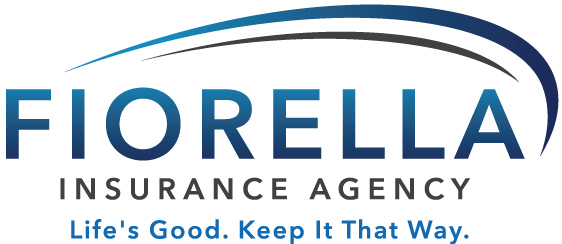Can my LLC pay for my health insurance? A frequent query among those who’ve formed their business as an LLC is if they can cover health insurance costs. Health insurance premiums represent a significant business expense, and understanding how to navigate this cost can be crucial for your financial well-being.
In the forthcoming sections, we will delve into the specifics of self-employed individuals deducting health insurance premiums. We’ll also discuss scenarios where a spouse enjoys health insurance coverage through their employer and its impact on premium deductions.
Further, you’ll learn about employee benefit program expenses and strategies that can help provide affordable health insurance coverage without compromising profitability. Finally, we’ll explore how making your business pay for personal or family health insurance could potentially result in substantial tax savings under certain circumstances.
So if you’re still wondering “Can my LLC pay for my health insurance?” – keep reading!
Table of Contents
- The Connection Between Health Insurance and Your LLC
- Understanding Health Insurance Premium Deduction for Self-Employed Individuals
- Can Your Business Pay for Your Health Insurance?
- How to Get Your Business to Foot the Bill for Your Health Insurance
- Choosing the Right Business Structure for Maximum Benefits
- Health Insurance Premiums and Tax Deduction
- Tips To Reduce Employees’ Health Insurance Costs
- FAQs in Relation to Can My LLC Pay for My Health Insurance
- Conclusion
The Connection Between Health Insurance and Your LLC

-
Save
As a self-employed individual or sole proprietor with an LLC, you might be wondering how health insurance fits into your business expenses. Well, here’s the scoop: health insurance premiums can help reduce your taxes.
Surprisingly, many small biz proprietors are uninformed about this tax write-off. According to NFIB, only half of small businesses provide health insurance to their employees because of the high costs. But hey, those premiums can be a business expense that lowers your tax bill.
Self-employed individuals can take advantage of deducting their health insurance premiums on their federal income tax returns as a business expense. Whether it’s just for you or your whole family, it’s all deductible. Talk about a healthy deduction.
Oh, and here’s a bonus: Qualifying long-term care insurance coverage can also be deducted. But remember, there are some age limits and IRS requirements to meet.
So, read the fine print!
If your partner has health coverage provided by their employer, it won’t interfere with the deduction of premiums for yourself. So, you both get coverage and tax benefits. Talk about a power couple.
Maximize your LLC’s tax benefits. Deduct health insurance premiums as a business expense and enjoy coverage for you and your family. #LLCtaxbenefits #healthinsurance Click to Tweet
Understanding Health Insurance Premium Deduction for Self-Employed Individuals
If you’re self-employed, understanding how to subtract health insurance premiums could potentially result in some noteworthy savings. This deduction lets you offset the cost of your qualifying long-term care insurance coverage.Health Insurance Premiums: A Big Business Expense
Health insurance premiums can be a major expense for businesses. Expenses for health insurance can pile up, particularly if you have numerous staff members or dependents on the policy. But fear not. By subtracting these outlayings, you could diminish your taxable proceeds and perhaps rescue a lot of cash.Spouse’s Health Insurance Coverage: A Potential Snag
If your other half has medical coverage through their place of employment, it could complicate matters when trying to deduct premiums as a business expense. The IRS only allows deductions for medical care expenses that weren’t covered by an employer-subsidized health plan. If your spouse opts to be covered by your plan, despite having access to an employer-subsidized health insurance option, you may not qualify for the medical care expense deduction. Bummer, right? Understanding post-tax health insurance benefits and the rules for self-employed folks is key. Can your LLC pay for your family’s premiums? Can you deduct expenses related to health insurance premiums? These questions will help you navigate the tricky world of taxes and healthcare costs.Save money on health insurance premiums as a self-employed individual by deducting them from your taxable income. Learn how in this helpful guide. #healthinsurance #selfemployed Click to Tweet
Can Your Business Pay for Your Health Insurance?
Wondering if your firm can take on the expense of your medical coverage? Yes, your business can pay for health insurance, however, the IRS may have a different opinion. The rules vary depending on your business structure and ownership stake. Most businesses won’t see any tax benefits from covering their health insurance premiums; these are generally considered non-deductible personal costs. They’re usually considered personal expenses, not deductible business expenses. However, S Corporation owners with more than 2% of the company’s stock may be able to take advantage of tax savings by having their businesses pay for or reimburse health insurance premiums. S Corp owners can score some sweet tax savings by having their businesses pay for or reimburse their health insurance premiums. These payments become part of the employee’s wages, subject to income tax but not Social Security or Medicare taxes.Employee Benefit Program Expenses – A Closer Look
Let’s examine the specifics of employee benefit program expenses in more detail. One important aspect is the cost of employees’ health insurance. A well-structured employer-subsidized health plan can offer affordable health insurance coverage while keeping the company’s bottom line in check. But finding that sweet spot between quality benefits and cost management requires some expert advice. HR consultants or brokers who specialize in group plans can help you navigate the options based on your workforce size, budget, and employees’ needs. They’re like the GPS for your benefits journey.Did you know your LLC can pay for your health insurance? Find out how to save on taxes and get quality coverage with expert advice. #HealthInsurance #LLC Click to Tweet
How to Get Your Business to Foot the Bill for Your Health Insurance
If you’re self-employed or a business owner, you can make your business pay for your health insurance premiums and save on taxes. Here’s how:Tax Deductions Made Easy
The IRS allows businesses to deduct health insurance premiums as a business expense, reducing taxable income. But there are a few things to keep in mind:- Sole Proprietors: As a sole proprietor, you can’t have your business directly pay for your health insurance. Instead, you can take the self-employed health insurance deduction on your tax return.
- LLC Owners: If you have an LLC and are not taxed as a corporation, the same rules apply as for sole proprietors. The LLC itself can’t deduct the costs, but you can deduct them on your individual return based on your ownership percentage.
- S Corporation Owners: If you own more than 2% of an S Corp, you can have your corporation pay for or reimburse your health insurance premiums. These payments are included in wages but not subject to Social Security or Medicare taxes, which means big savings.
Save on taxes and let your business pay for your health insurance premiums. Learn how to take advantage of deductions as a self-employed or LLC owner. #healthinsurance #taxdeductions Click to Tweet
Choosing the Right Business Structure for Maximum Benefits
Not all business arrangements are alike in terms of deducting medical coverage premiums. The kind of organization you select can have a major effect on diminishing charges and exploiting your advantages. Sole proprietors can deduct their health insurance premiums on their tax returns. No need to itemize deductions or worry about medical expense limits. Partnerships let active partners treat health insurance premiums as a guaranteed payment. Deductible by the partnership and included in the partner’s gross income. Corporations have different rules for S corporations and C corporations. In an S corporation, shareholder-employees can get a bigger tax benefit with the right premium payment structure.Health Insurance Premiums and Tax Deduction
The IRS allows businesses to deduct premiums paid towards health insurance, including qualifying long-term care insurance coverage. These deductions are considered necessary business expenses under employee benefit program expenses. Therefore, self-employed individuals deducting health insurance premiums can reduce their taxable income significantly.Paying Health Insurance Premiums Through Your Business
To get this deduction, the policy must be in the name of the business or owner (you). This means that you cannot just pay health insurance premiums personally and then claim them as a business expense; it has to go through the proper channels. If done correctly though, these payments represent a substantial tax deduction at year-end.Affordable Health Coverage Options For Sole Proprietors
Sole proprietors establish businesses with hopes of financial freedom but often struggle with finding affordable health coverage options. One option could be obtaining Obama Care Insurance which provides affordable healthcare plans suitable for families and individuals alike. By paying their insurance premiums through their companies’ accounts, they not only provide themselves with comprehensive cover but also enjoy post-tax benefits by treating these costs as deductible business expenses. This strategy helps sole proprietors manage both personal and employees’ health insurance cost-effectively while enjoying potential savings on taxes too. Health insurance tax deductions can be complex but rewarding. Paying for personal or family health insurance directly through your business can lead to significant tax savings. Consult a pro before making any financial decisions.Maximize your tax benefits and deduct health insurance premiums by choosing the right business structure. Consult a pro for expert advice. #SmallBusiness #TaxSavings Click to Tweet
Tips To Reduce Employees’ Health Insurance Costs
Providing affordable health insurance coverage to your employees is a must, but those pesky premiums can be a pain. Here are some tips to cut costs without sacrificing quality:- Consider High-Deductible Plans: Lower premiums, higher savings potential. Pair with HSAs or FSAs for extra oomph.
- Promote Preventive Care: Catching health issues early saves money. Encourage check-ups and screenings.
- Negotiate With Insurers: Flex those bargaining muscles for better rates and coverage options.
- Create Wellness Programs: Healthy employees mean fewer sick days and lower premiums. Get them moving and eating right.
Cutting health insurance costs without sacrificing quality is possible. Consider high-deductible plans, negotiate with insurers, and promote preventive care. #HealthInsuranceTips #SmallBusiness Click to Tweet
FAQs in Relation to Can My LLC Pay for My Health Insurance
Can I write off my health insurance as a business expense?
Yes, if you’re self-employed and have no employees, you can deduct your health insurance premiums as a business expense.Can a partnership pay health insurance premiums?
Definitely. Partnerships can pay health insurance premiums and deduct them on their tax returns.How do I qualify for the self-employed health insurance deduction?
To qualify, you must be a sole proprietor, a partner in a partnership, an LLC member, or an S Corporation shareholder who owns more than 2% of the company’s stock.Conclusion
Can my LLC pay for my health insurance? If you’re self-employed, deducting your health insurance premiums can be a smart move to reduce your taxes and save some cash. And hey, if you’re looking for help with managing employee benefit program expenses or setting up your business, check out Zenbusiness. They’ve got great resources and services to make your life easier.Contact Fiorella Insurance today for your free health insurance quote.



